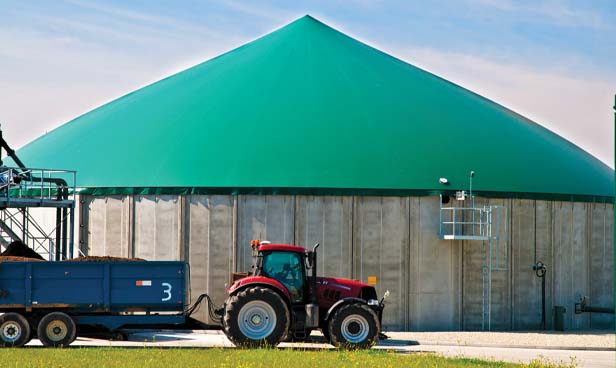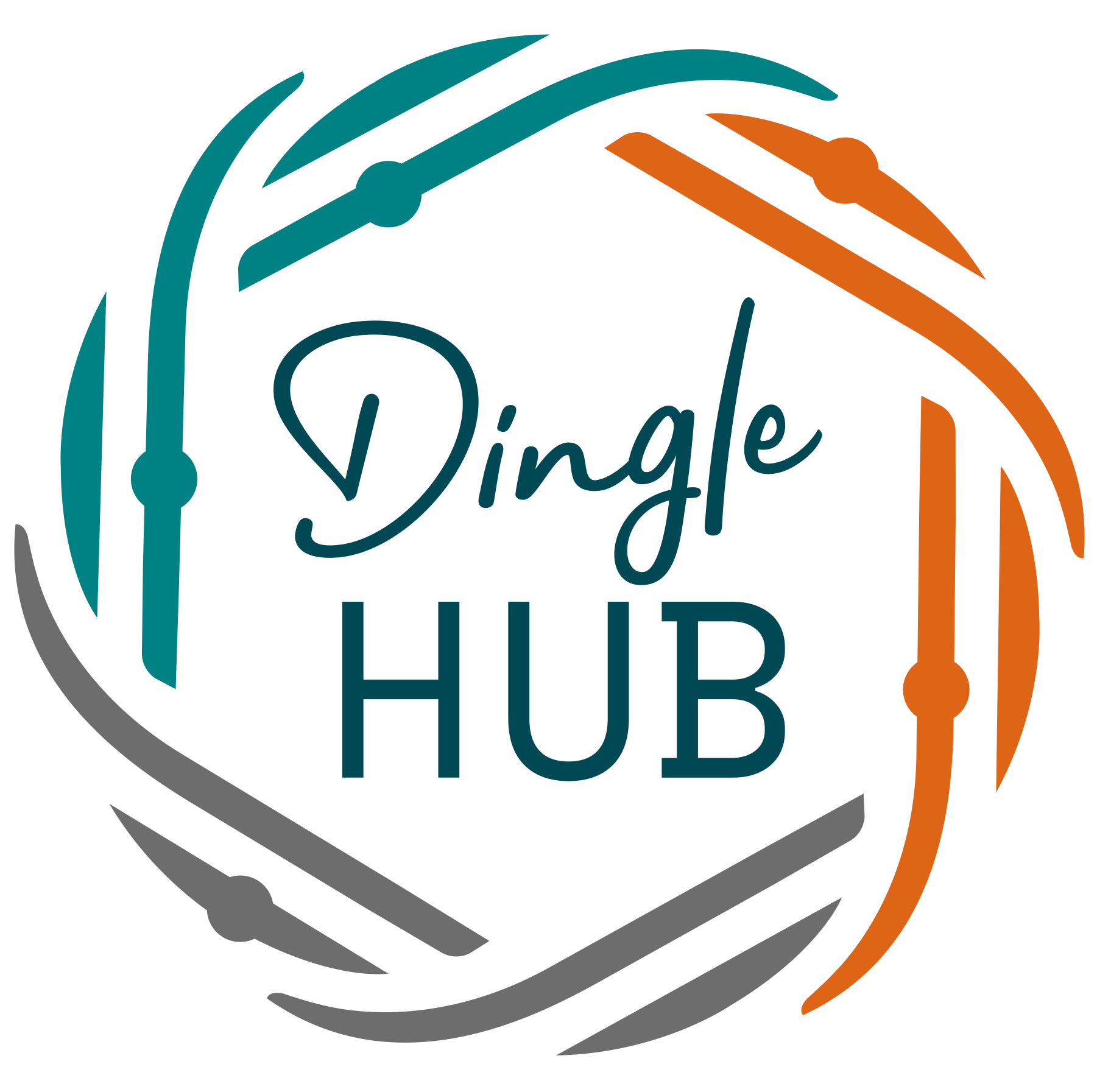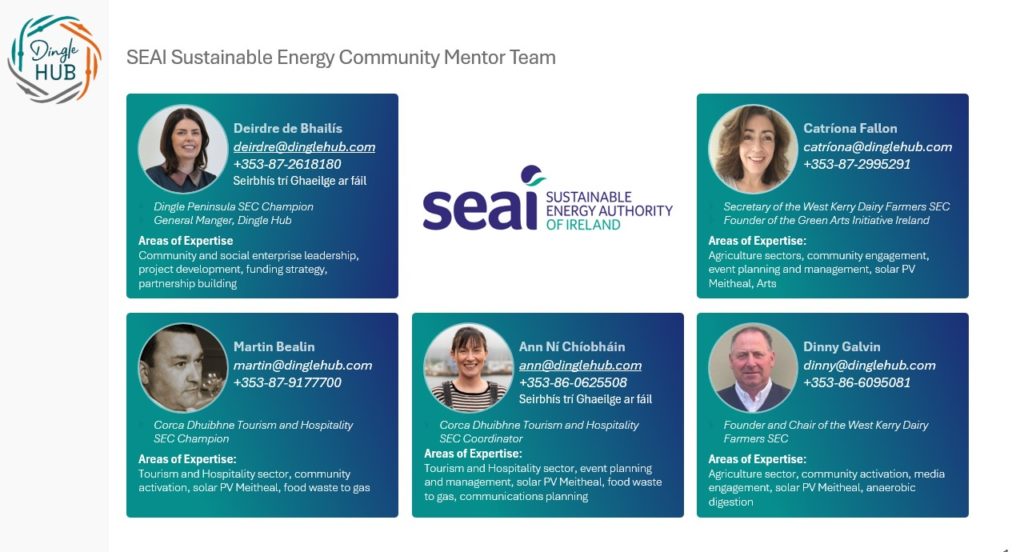We’re working on numerous projects to reduce energy consumption on the peninsula and make sure the energy we do use is cleaner. We collaborate with a host of local and national partners to explore the latest green technologies.
SEC Mentors
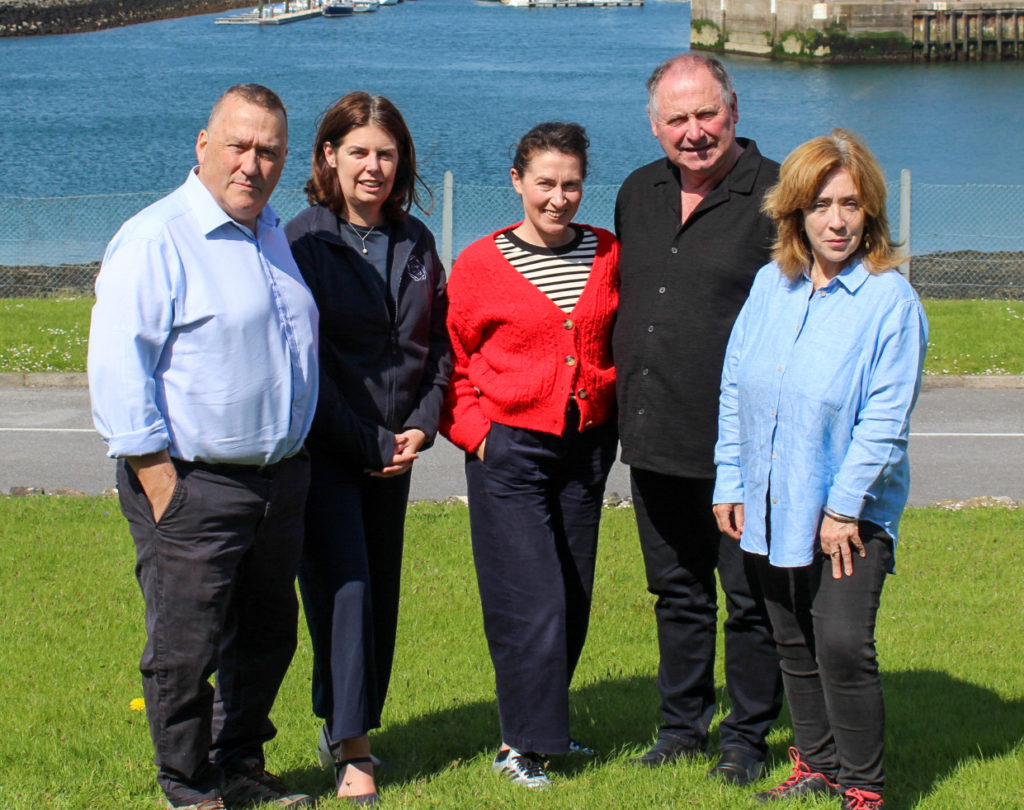
Sustainable Energy Community
As part of our effort to transition to a low carbon society, people from multiple sectors across the Dingle Peninsula are working together to reduce carbon outputs and embrace a more sustainable way of life. The Dingle Hub is fostering this sustainable energy community (SEC) through events, projects, research, training and mentoring.
Read:
The Value of Collaboration (February 2021) [PDF]
Crete Valley
 Dingle Hub is participating as a “follower” community of the Crete Valley project that is working to turn the Greek island of Crete into a Renewable Energy Valley “Living Lab.” Per the Crete Valley website: “Renewable Energy Valleys (REVs) help generate, distribute and use renewable energy within the same geographical area. They integrate advanced information and communication technology (ICT), interoperable digital solutions, social innovation processes, and economically viable business models.”
Dingle Hub is participating as a “follower” community of the Crete Valley project that is working to turn the Greek island of Crete into a Renewable Energy Valley “Living Lab.” Per the Crete Valley website: “Renewable Energy Valleys (REVs) help generate, distribute and use renewable energy within the same geographical area. They integrate advanced information and communication technology (ICT), interoperable digital solutions, social innovation processes, and economically viable business models.”
The aim is to demonstrate this is not only feasible on the island of Crete, but also replicable elsewhere.
Energy Master Plan (October 2018 – June 2019)
In October 2018, the Dingle Sustainable Energy Committee (SEC) commissioned an energy master plan for the peninsula, which included a survey of existing energy use. The survey concluded in June 2019, and the group produced a report outlining how the Dingle Peninsula could save energy in the coming years.
Since the plan’s release, energy saving targets for the region have increased to reflect the more ambitious targets set out in the Program for Government and Climate Action Bill of 2021.
Read:
- EMP Learning Brief (August 2020) [PDF]
- Energy Master Plan (February 2020) [PDF]
- EMP Consultants’ Supporting Detail (July 2019) [PDF]
Watch on YouTube:
- Energy Action on the Dingle Peninsula (August 20, 2021)
- “Dingle Adapts” energy series, (streamed in five parts from May 27th to June 24th, 2021)
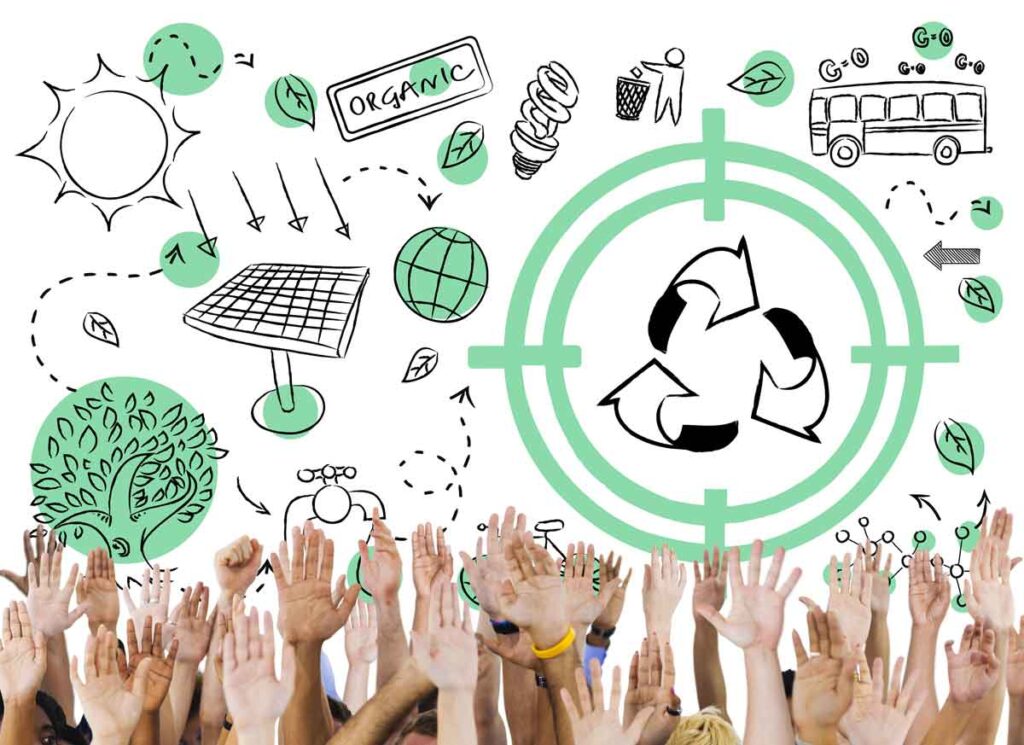
Enpower Project
“Enpower” Project
We are a partner on the Horizon Europe Enpower project, which is redefining the energy landscape by bringing together cutting-edge technology, community engagement and innovative business models.
Through this project, we are piloting a community-focused online platform in Chorca Dhuibhne. The aim of the platform is to lower energy spending through community campaigns instead of an individual household approach. These campaigns will include solar installations, LED upgrades, reviewing energy tariffs, etc. Approaching these efforts as a community rather than as individuals can decrease costs and increase awareness.
By coming together as a collective through the Enpower platform, our members got up to a 20% discount on solar PV for their businesses, in addition to the SEAI grant of up to 25%.
On the online platform, you can store your company details (such as CRO numbers, VAT numbers, etc.) safely in one place. Then if you’re interested in joining a solar or LED campaign your details are already on file, and it only takes one click of a button to register your interest.
The platform will help you keep up to date with campaigns that are being run in the area, as well as the latest methods and technologies to reduce your energy spending.
You are under no obligation to lock in for any of the campaigns when you register.
View:
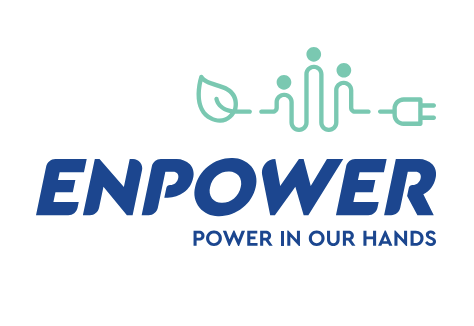
Bioenergy (Anaerobic Digestion)
Anaerobic digestion breaks down biodegradable material (slurry, grass, and food waste) in the absence of oxygen, producing biogas. Biogas is a renewable fuel source that can be used for heat, electricity and transport. It is currently used worldwide in domestic, agricultural, municipal and industrial applications.
The process of anaerobic digestion fits in with circular economy thinking where waste and resource use are minimised. Organic wastes, agricultural by-products and feedstocks become valuable resources when used to develop biofuel, whereby creating new economic opportunities for our local community.
Dingle Hub and partners first conducted a feasibility study and are now working to determine if an anaerobic digestion plant is suitable for the Dingle Peninsula.
Read:
Submission by Dingle Hub to the Public Consultation on Ireland’s Draft National Biomethane Strategy (February 2024) [PDF]
Feasibility Study on Anaerobic Digestion for the Dingle Peninsula (November 2020) [PDF]
View:
Infographic on issues, options and the way forward (2022)
Watch on YouTube:
- Anaerobic Digestion Webinar (April 2022)
- Anaerobic Digestion on the Dingle Peninsula (2020)
